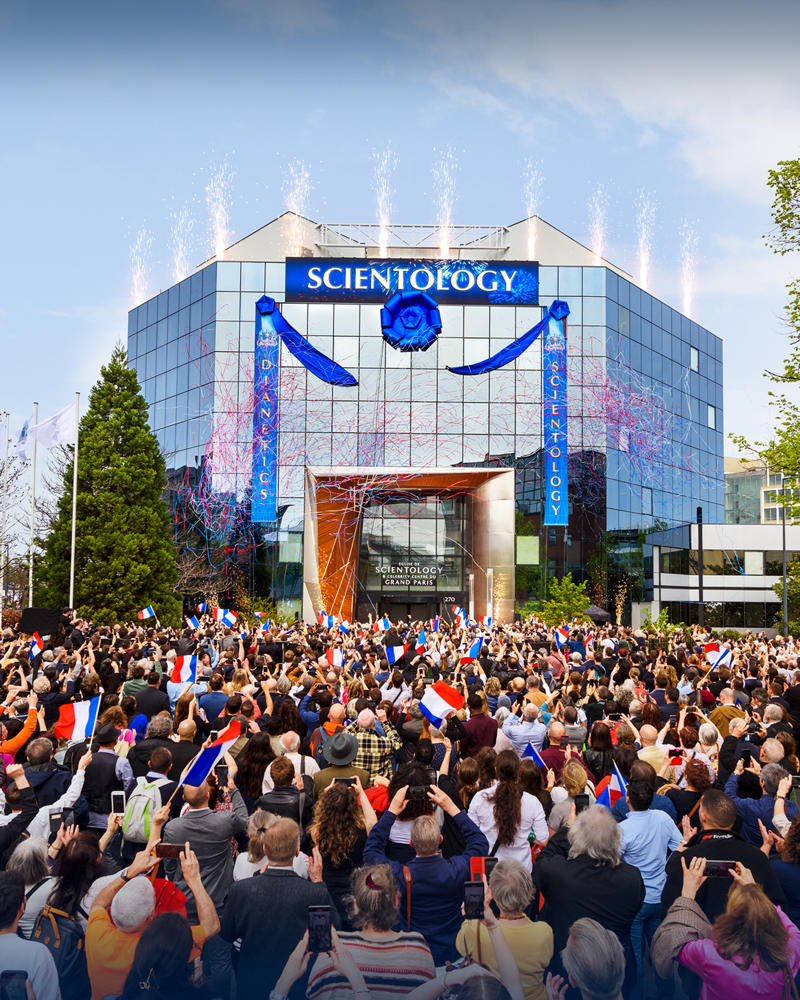Scientology in Pop Culture: Representations and Misconceptions
Scientology in Pop Culture: Representations and Misconceptions
Blog Article
Debunking Misconceptions: Separating Fact From Fiction Concerning Scientology

Beginnings of Scientology
The origins of Scientology trace back to the mid-20th century when L. Ron Hubbard, a scientific research fiction author, founded the belief system in the 1950s. Hubbard's growth of Scientology stemmed from his earlier self-help system called Dianetics, which he presented in the 1940s - Scientology. The transition from Dianetics to Scientology noted a change towards a much more extensive spiritual philosophy that integrated facets of psychology, Eastern spiritual customs, and Hubbard's own theories on human presence
Hubbard's exploration into the human mind and spirit resulted in the creation of Scientology as a religious beliefs focused around the idea of spiritual enlightenment and self-improvement through a procedure called bookkeeping. Auditing, a type of spiritual therapy, aims to help individuals get over psychological and mental barriers, referred to as engrams, that impede individual development and awareness.
As Hubbard's teachings acquired popularity, Scientology developed into a worldwide motion with a considerable following. In spite of disputes and objections bordering its methods and beliefs, Scientology remains to attract followers looking for spiritual gratification and individual growth.
Core Ideas and Practices

One more basic aspect of Scientology is the concept of the Thetan, the spiritual significance of a person that transcends the physique. Fans intend to recognize and reinforce their connection to the Thetan through various practices such as study courses and purification rituals.
The Church of Scientology likewise puts a solid focus on the value of individual responsibility and the belief that individuals have the power to shape their own destinies. Through adherence to ethical guidelines and the pursuit of self-improvement, professionals of Scientology aim to accomplish better degrees of joy, success, and spiritual gratification.
Conflicts and Criticisms
Amidst Scientology's core ideas and methods lies a landscape noted by debates and criticisms that have actually stimulated extreme argument and analysis. Additionally, Scientology's condition as a tax-exempt religious organization in some nations has been a point of opinion, with critics suggesting that its techniques are much more comparable to a company than a faith.
Another location of debate borders the Church's therapy of doubters and skeptics. Reports have arised of harassment, scare tactics, and legal dangers routed at those who speak up versus Scientology. This has actually raised issues regarding liberty of speech and the organization's commitment to openness and liability.
While Scientology has actually vehemently rejected a number of these allegations, the objections and controversies surrounding the Church remain to fuel public skepticism and examination.
Scientology's Influence in Society
With its visibility in different fields of society, Scientology's impact can be observed in both subtle and obvious methods, forming communications and assumptions. In the realm of education, the Church of Scientology has dealt with examination for its initiatives to present its teachings into institutions with programs like "Applied Scholastics." Doubters argue that such campaigns blur the lines between church and state, possibly influencing look at these guys the educational experiences of trainees. Furthermore, Scientology's influence includes the realm of psychological wellness, where its sights on psychiatry and psychology have triggered debates within the clinical area. The church's anti-psychiatry position has resulted in uncertainty and problems regarding the efficacy of psychological wellness therapies. In the world of amusement, Scientology's organization with top-level stars has accentuated the religion, both favorably and adversely. The involvement of famous numbers in Scientology has, in some instances, offered to popularize the religion, while in others, it has actually drawn criticism and elevated concerns regarding the church's practices and ideas.
Debunking Common Misconceptions
The Church of Scientology is legitimately recognized as a religion in lots of nations, including the United States, where it has tax-exempt status. Like other religious beliefs, Scientology gives spiritual guidance and methods for its participants.
An additional misconception is that Scientology forces its members to cut ties with their households. In truth, the church stresses the importance of household connections and encourages participants to maintain healthy connections with their enjoyed ones.

Final Thought
To conclude, it is very important to separate fact from fiction when going over Scientology. By analyzing its origins, core beliefs, controversies, and influence in culture, we can disprove usual misconceptions bordering this faith. It is crucial to come close to the subject with a unbiased and important way of thinking in order to recognize Scientology precisely and without predisposition.
Rooted in a foundation of spiritual enlightenment and personal development, Scientology's core ideas and methods encompass a diverse array of concepts and rituals. Central to Scientology is the belief that human beings are never-ceasing spiritual beings who have forgotten their real nature. The participation of well-known figures in Scientology has, in some instances, offered to browse around here popularize the religion, while in others, it has actually attracted criticism and raised inquiries concerning the church's methods and beliefs.
The Church of Scientology is lawfully recognized as a faith in several countries, including the United States, where it has tax-exempt standing. Like various other religious beliefs, Scientology provides spiritual advice and methods for its members.
Report this page